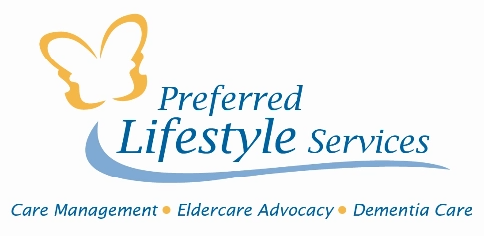Top 7 Questions (& Answers!) for Alzheimer’s Caregivers
What is the most important step I can take to help me survive as an Alzheimer’s (AD) caregiver?
Education, Education, Education. It is impossible to overestimate the benefits of professional guidance for AD caregivers. The fastest road to maintaining your health and your family’s quality of life is to seek help from professionals who are experts in AD behavior and family needs. Begin your education now:
- What is Alzheimer’s disease (AD)? AD is a progressive, incurable, neurological disease and the 6th leading cause of death in the U.S. Current treatment options offer hope for slowing the progression of the disease; there are no known cures.
- Stay alert for Ageism: The assumption that dementia + old age = Alzheimer’s may prevent treatment for the more than 50 treatable or reversible illnesses that exhibit dementia symptoms.
- Insist on Thorough Testing: Nothing is more important than an early, accurate diagnosis which is only available from thorough testing by a Board Certified Neurologist specializing in AD & related dementias.
What help and information should I expect from my loved one’s personal physicians?
Fuhgeddaboudit. With all due respect, “Sally, he’s 83, what do you expect? Just go home and let him live the best life he can” is not a diagnosis, it’s ageism. Alzheimer’s is extremely complicated, progressive, & outside the general knowledge of most Primary Care physicians. A Board Certified Neurologist specializing in dementias is the only doctor who:
- Is likely to provide an accurate, early diagnosis
- Is current on new research & medical treatments
- Is connected to clinical trials for new medications
- Can appropriately manage Alzheimer’s medications
- Is connected to AD specific healthcare advocates
Wrong question: I need help? Better question: Why do you think you can do this without help?
One of the results of society’s continuously expanding medical knowledge is that AD is now a long-term disease. Patients may survive as long as 20 years from diagnosis to death—meaning you don’t know if you’ll be a caregiver for two years or two decades. Caring for a loved one with dementia is considered one of the most difficult jobs in the caregiving spectrum. The financial losses, loss of quality of life, and loss of self make it vital for caregivers to get help.
What expectations should I have if my loved one resides in an Assisted Living Community (ALF)?
Trouble-- unless you choose a community specializing in “dementia care.”
Look for:
- Proof of staff specially trained to identify & manage your loved one’s needs: anxiety, confusion, periodic outbursts. Ask for certifications in dementia care.
- High staff-to-resident ratio for ideal care.
- Special programs to meet the needs of memory-impaired or confused residents.
- Secured (i.e., locked) units to prevent your loved one from wandering out alone and unattended.
- Dedicated dementia support groups for you and other family members to help you cope & improve your quality of life.
- Medical, psychiatric, & other services available within the community to assure Alzheimer’s behavior modification techniques other than solving every problem with sedating drugs.
What expectations should I have if my parent resides in a Skilled Nursing Facility (SNF)?
See #4 and substitute Skilled Nursing for Assisted Living.
How do I protect myself from the emotional & physical stresses of caring for a loved one with dementia?
Education, Education, Education. Alzheimer’s is different from almost all other illnesses. For starters, Alzheimer’s is a family disease. If Dad has it, so do you, just in different ways. Example: Name another illness where you must remain calm, even warmly thank Mom for trying to help you by putting her dirty diaper in the clothes dryer and turning on the heat? Or remain calm in a restaurant when Dad picks a glob of mashed potatoes off his plate and put the glob in his shirt pocket. Or manage your wife’s hysteria from her belief that a strange man broke into your home and sexually attacked her during the night which is why she won’t come out of her room? Save time, energy, and maybe even your sanity. Get help from qualified Alzheimer’s professionals or experienced Alzheimer’s caregivers who can help guide you through the disease process & help coordinate services to ease your burden. Services may include helping you:
- Master new Coping Skills to manage wandering, communication, incontinence, aggressive behavior
- Plan for your future
- Locate dementia specific, affordable day care
- Learn techniques to management stress and guilt
- Learn dementia safety tips to reduce risks for in-home accidents
- Master stress reducing communication skills for your AD parent
- Locate optimum medical care for you and your loved one.
Bottom Line: If you’re an AD caregiver, or about to become an AD caregiver, pick up your phone now and get help. Qualified Alzheimer’s professionals can help you master new caregiving and coping skills by providing you with the information you need to make informed decisions. Seek out caregiver support programs that are specific to Alzheimer’s. The more education you have, the more you will understand the illness—both can go a long way toward lowering your stress, reducing caregiver-induced depression, and increasing your loved one’s and your own quality of life.

